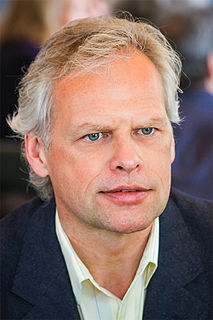A Quote by Mark Nepo
Essentially, the life of expression is the ongoing journey of how we heal each other... for by telling our stories and listening to the stories of others, we let out who we are and find ourselves in each other, and find that we are more together than alone.
Related Quotes
When we haven't the time to listen to each other's stories we seek out experts to tell us how to live. The less time we spend together at the kitchen table, the more how-to books appear in the stores and on our bookshelves. But reading such books is a very different thing than listening to someone' s lived experience. Because we have stopped listening to each other we may even have forgotten how to listen, stopped learning how to recognize meaning and fill ourselves from the ordinary events of our lives. We have become solitary; readers and watchers rather than sharers and participants.
As an activist, you do find yourself directed more toward public action. But I've always tried to use stories from my own life in my writing for instance. It has always been clear to me that the stories of each other's lives are our best textbooks. Every social justice movement that I know of has come out of people sitting in small groups, telling their life stories, and discovering that other people have shared similar experiences. So, if we've shared many experiences, then it probably has something to do with power or politics, and if we unify and act together, then we can make a change.
I don't necessarily think stories have functions any more than diamonds have functions, or the sky has a function... Stories exist. They keep us sane, I think. We tell each other stories, we believe stories. I love watching the slow rise of the urban legend. They're the stories that we use to explain ourselves to ourselves.
For girls and women, storytelling has a double and triple importance. Because the stories of our lives have been marginalized and ignored by history, and often dismissed and treated as 'gossip' within our own cultures and families, female human beings are more likely to be discouraged from telling our stories and from listening to each other with seriousness.
In a word, live together in the forgiveness of your sins, for without it no human fellowship, least of all a marriage, can survive. Don't insist on your rights, don't blame each other, don't judge or condemn each other, don't find fault with each other, but accept each other as you are, and forgive each other every day from the bottom of your hearts.
Have you ever considered, beloved other, how invisible we are to each other? We look at each other without seeing. We listen to each other and hear only a voice inside out self. The words of others are mistakes of our hearing, shipwrecks of our understanding. How confidently we believe OUR meanings of other people's words.
Not everyone knows how to be alone with others, how to share solitude. We have to help each other to understand how to be in our solitude, so that we can relate to each other without grabbing on to each other. We can be interdependent but not dependent. Loneliness is rejected despondency. Solitude is shared interdependence.
How joyful to be together, alone as when we first were joined in our little house by the river long ago, except that now we know each other, as we did not then; and now instead of two stories fumbling to meet, we belong to one story that the two, joining, made. And now we touch each other with the tenderness of mortals, who know themselves




































